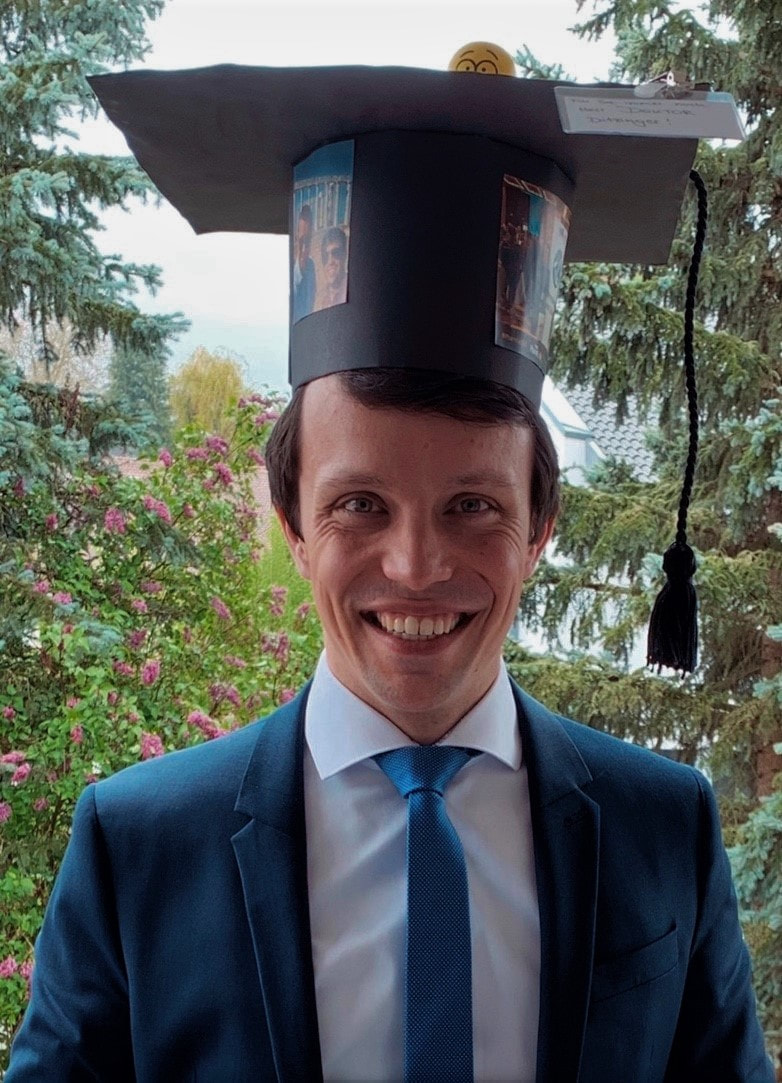| Felix Ditzinger (ESR2) has recently received his PhD. We would like to congratulate Felix on successfully defending his PhD and have held a short interview to hear about his experience in PEARRL. 1. What has your research project focused on and what are your key results and innovations coming from your research project? The key aspect of my research was to explore new excipient combinations for hot melt extrusion (HME). We focussed on interacting small molecular additives in combination with established polymers to change the physico-chemical properties for a more feasible processing in HME. Such an approach should lead to new modified polymeric matrices, which broadens the selection of carriers for the development of an amorphous solid dispersion. As a result of this project, we were able to develop various modified polymeric matrices and have demonstrated the beneficial properties with regards to stability of the amorphous form, amount and duration of supersaturation in biorelevant media as well as downstream processing capabilities. Moreover, we could show in an in vivo rat study that the matrices are capable of improving the oral absorption of a poorly water-soluble drugs. |
2. What impact does your research project and your outcomes have (in your field of research, in drug development, any benefits for the general public etc.)?
The concept of my research, which includes the combination of small molecular additives with polymeric compounds, can be applied in the development of new drug products, especially if a feasible carrier cannot be found. In brief, this concept has the potential to enable more drugs to be formulated as an amorphous solid dispersion and consequently can lead to improved drug products on the market.
3. What were your personal highlights over the course of your research project (training, results, awards, networking etc.)?
In my opinion, the personal highlights of this project are not awards or only the results. The personal benefit of my research project lies also in the collaboration with my fellow ESRs and other partners. Through such a network, personal growth and the capability to work in a team-orientated environment are encouraged, which should be the focus in such a network.
4. Are there any elements of the training you received that you find should be integrated in local doctoral programmes?
The scientific writing training and the presentation training, I received during the Wisdom Weeks should be integrated in more doctoral programs, since those two things are a key aspect to success of every PhD.
5. How did the PEARRL network impact your doctoral experience?
Through my participation in the PEARRL network, I got the opportunity to collaborate with many fellow scientist and other people, which provided significant scientific results. Moreover, on the personal side I learned to organize projects with fellow ESRs, who were not located at my university. In line with the growth in social skills throughout the project, I was encouraged to become a more team-oriented researcher.
6. What are your plans for the future?
In the future, I am going to be working in the pharmaceutical industry at Roche, which gives me the opportunity to apply the capabilities I learned during my years in the PEARRL network. My working field will be the formulation development, which fits perfectly to the field I did my PhD in.


 RSS Feed
RSS Feed
